#the undomestic goddess
Text

Labor Day
recommended by @bibliophilecats :)
12 notes
·
View notes
Text
“If I've learned one lesson from all that's happened to me, it's that there is no such thing as the biggest mistake of your existence. There's no such thing as ruining your life. Life's a pretty resilient thing, it turns out.”
The Undomestic Goddess, Sophie Kinsella
3 notes
·
View notes
Quote
If I've learned one lesson from all that's happened to me, it's that there is no such thing as the biggest mistake of your existence. There's no such thing as ruining your life. Life's a pretty resilient thing, it turns out.
The Undomestic Goddess, Sophie Kinsella
8 notes
·
View notes
Text

-The Undomestic Goddess, Sophie Kinsella
1 note
·
View note
Photo
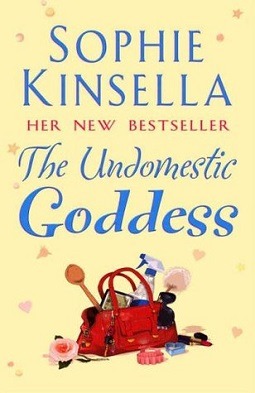



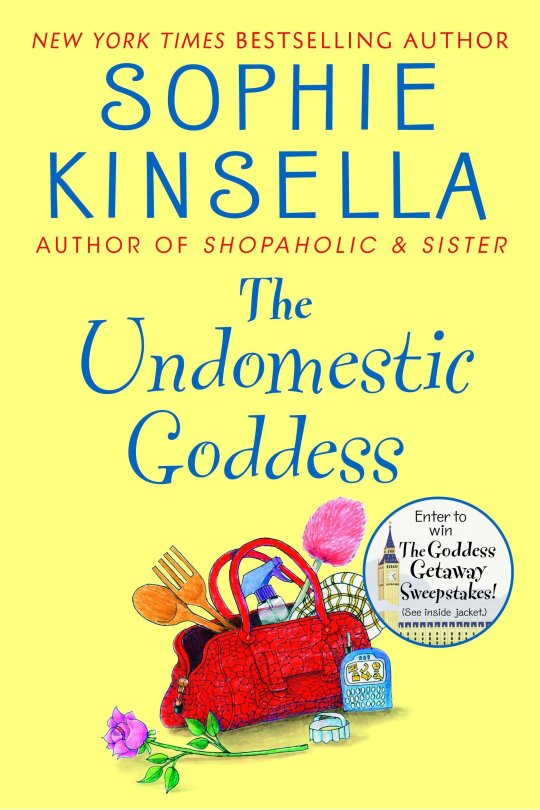

Books I’ve Read in 2022
Number 22
The Undomestic Goddess
0 notes
Text
‘The Undomestic Goddess’ by Sophie Kinsella
Genre: Adult Fiction – Chic Lit / Paranormal
Published: 2005
Format: eBook
Rating: ★★★★
A lawyer becoming a cleaner in a far-out place then opting to stay as a cleaner is brilliant. I’ve never read anything like it before. ‘The Undomestic Goddess’, although not my favourite Sophie Kinsella books, is nevertheless a funny read. The synopsis on the back immediately hooked me and it kept me…

View On WordPress
#Book#Book Review#Chic Lit#cleaner#ebook#Fiction#kindle#lawyer#Novel#Review#Romance#samantha sweeting#Sophie Kinsella#undomestic goddess
0 notes
Text
Crosshair's Anima
This is the third part of the character analysis for Crosshair. You can read part 1 and part 2 here. I will be referring to “Goddesses in Everywoman” by Jean Shinoda Bolen for this analysis.
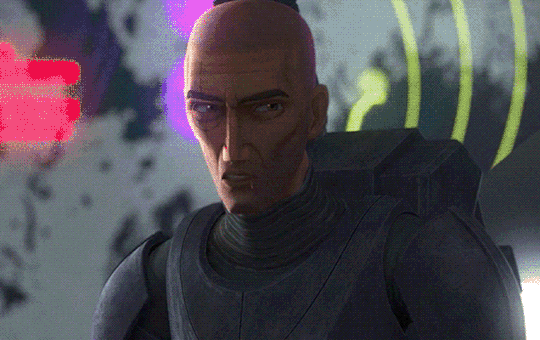
Crosshair’s anima consists of multiple archetypes, but the most prominent ones are Artemis and Hera. Artemis, or Diana as the Romans called her, is the Goddess of the Hunt and the Moon. She is the first-born twin sister of Apollo, the God of the Sun. As the Goddess of the Hunt, she wields a silver bow and carries a quiver of arrows on her back. She roams the wilderness of forest, mountain, meadow and glade with her band of nymphs and hunting dogs. As the Goddess of the Moon, she acts as a light-bearer, carrying torches in her hands or with the moon and stars surrounding her head. She is also the Goddess of Wildlife and she is associated with many undomesticated animals like the stag, doe, hare, quail, lioness, boar, bear and horse.
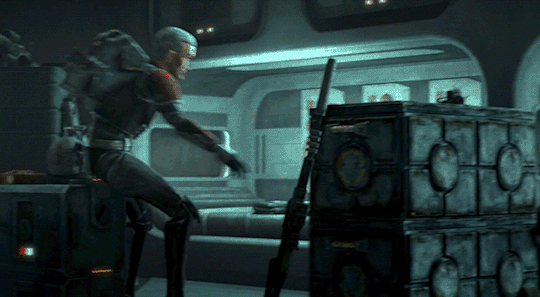
Artemis is a virgin goddess and she is the personification of an independent feminine spirit. She feels whole without a partner, and she has the “I can take care of myself” attitude. This archetype enables one to pursue interests and work that matters to them without needing other people’s approval. Their identity and sense of worth are based on who they are and what they do, rather than their relationships with others. Although Crosshair is part of the Bad Batch, he is capable of doing his own work while separated from them. In “The Bad Batch”, when the Bad Batch, Rex and Jesse infiltrate the Cyber Center, Crosshair positions himself from a distance, and he goes to secure a speeder craft as their getaway vehicle. In “A Distant Echo”, when Anakin tells the Bad Batch and Rex to split up so they can find Echo easier, Crosshair chooses to separate from his team and follow Anakin. With the rise of the Empire, Crosshair remains capable of carrying out the orders given to him even though the Bad Batch refuses to do so. He strongly identifies himself as a soldier of the Empire, claiming that this is who he is in “Return to Kamino”. He is certain of his identity even without the influence of the inhibitor chip and without the approval of the Bad Batch.
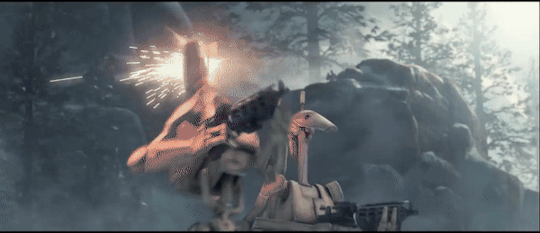
As the Goddess of the Hunt, Artemis is an archer that has the ability to aim for any target and know that her arrows will reach its marks. This archetype gives one the ability to concentrate intensely on whatever it is important to them, and to be undistracted from their course, which is called “focused consciousness”. The needs of others or competition would not deter them. In fact, competition only heightens the excitement of “the chase”. Not even obstacles or the difficulty in achieving the goal can hinder their perseverance. Since Artemis is more aligned to her instincts, her arrows are charged up with emotions. Hence, when a person channels their passion and intense emotions into pursuing a goal, their focus can be so intense that it becomes incredibly precise or destructive. Crosshair channels his intense emotions through his sharpshooting skills. His focus is so intense that every shot he makes is a precise killshot. However, in “Aftermath”, the shot Crosshair makes towards Wrecker only injures him. This may be a sign that he is fighting the effects of the inhibitor chip, and that he never intends to kill his brothers despite they have been branded as traitors to the Empire.
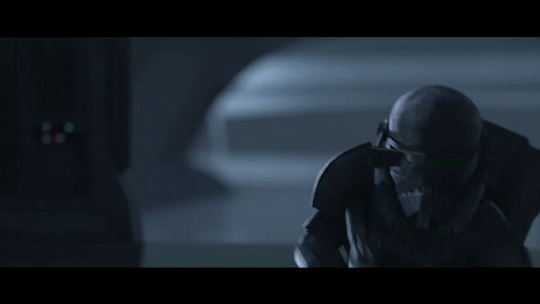
Artemis is seen as the archetype of the women’s movement because she is competent and independent, and she is protective of women and children. Since Artemis goes hunting and exploring the wilderness with her band of nymphs and minor deities associated with mountains, woods and streams, Artemis is also seen as the “big sister” archetype who emphasizes the “sisterhood” of women. In the myths, Artemis helped her mother Leto during her prolonged childbirth, and saved her from the giant Tityus who tried to overtake her. Artemis also came to other women’s aid, for example, she rescued the woodland nymph Arethusa from the pursuit of a river deity. Artemis is also known for her mercilessness, which is evident when she punished the hunter Actaeon who accidentally saw the goddess and her nymphs bathing in a hidden pool.

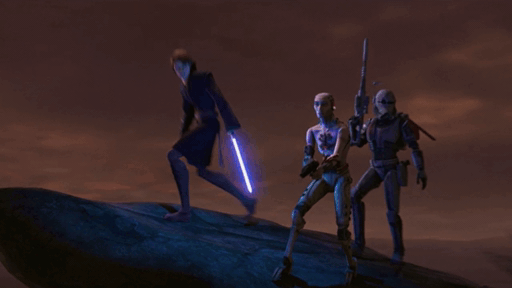
Crosshair is very protective of his brothers. In the Hyperspace Stories #10, when Dr. Krail appears as a hologram to greet the Bad Batch and state that he has been anticipating their arrival, Crosshair stands in front of Wrecker to protect him. In the episode “On the Wings of Keeradaks”, Crosshair protects the Poletecs by taking down the battle droids from afar. He also cares about Echo’s wellbeing as he is seen placing a hand on Echo’s shoulder after they fight off the battle droids. There are many headcanons and fanfictions that depict Crosshair protecting the vulnerable such as rescuing a person from another’s unwanted advances, which sometimes leads to a physical altercation. If Crosshair is not affected by the inhibitor chip, he will be impressed by Omega’s bravery for standing up for the Bad Batch in “Aftermath”.
People who feel true to themselves being with nature is connected to Artemis because she is associated with the wilderness and undomesticated nature. They may feel like they are in a spiritual communion with nature – be it surrounded by forests, mountains, or under the starry night. As the Goddess of the Moon and the Hunt, Artemis grants “moonlight vision”, which helps a person to look inward (like going into the wilderness, which contains our dreams, experiences and connection with nature) and be more reflective. There are headcanons that depict Crosshair as an animal lover, especially towards baby animals, which is an Artemis trait. In “Kamino Lost”, Crosshair is shown to have “moonlight vision” when he successfully takes the shot to save Omega despite the dark surroundings and the murky waters below. In “The Outpost”, Crosshair makes a spiritual connection with the Ice Vulture, which helps him to look inward and reflect on his decisions, leading him to turn against the Empire.
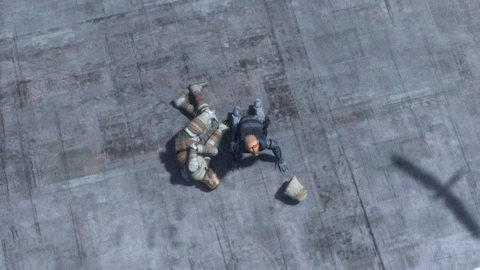
In Greek mythology, three goddesses make up the moon trinity – Selene who rules over the sky, Artemis on earth, and Hecate in the Underworld. This moon trinity can be represented by Riyo Chuchi, Crosshair and Echo in terms of their fight against the Empire: Riyo Chuchi is Selene because she is a senator and her high status means she is at the sky domain (the Galactic Senate); Crosshair is Artemis because his rebellion starts in the wilderness of Barton IV; Echo is Hecate (who is a constant companion to Persephone, Echo’s anima) because he fights in the darkness and at the crossroads where he rescues Howzer and two of his men.
Zeus and Leto are parents to Artemis, who are both loving and approving of her course of life. Parental support is needed to cultivate the Artemis archetype from a young age. Opposition and disapproval from parents (mostly from the father) may damage the self-esteem and self-confidence of an Artemis person. They may continue to put on a defiant attitude, but deep down, they feel inadequate despite all the successes they have, and they have a tendency to self-sabotage. Conflict usually arises between the mother and the daughter, especially if the mother is a Demeter archetype. A Demeter mother prefers a compliant good girl like Persephone, who will follow her, ask for her help, and accept that “mother knows best”. However, Artemis is the opposite to Persephone for she is independent and stubborn, which can lead to disappointment and feelings of rejection within the Demeter mother.
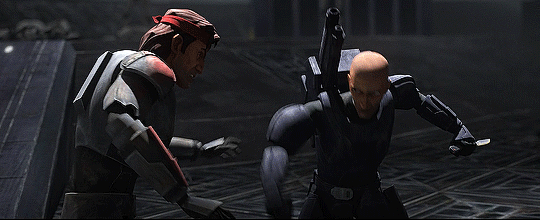
The conflict between Demeter and Artemis can be seen between Hunter and Crosshair. Hunter has the Zeus and Demeter archetypes. As Zeus, Hunter recognizes Crosshair’s talent and encourages him to develop it further. Though, his Demeter anima likely causes Hunter to limit Crosshair and stop him from doing certain things. Nevertheless, Crosshair’s stubbornness will get in the way, leading to arguments between the two. In “Aftermath”, Crosshair keeps shooting at Caleb Dume despite Hunter repeatedly telling him to stand down. They later have an argument about following orders. In “Return to Kamino”, Hunter refuses to accept that Crosshair willingly chooses to join the Empire, and decides to forcibly take him away after stunning him. In “Kamino Lost”, Hunter keeps trying to reason with Crosshair about the Empire’s atrocities but to no avail. Crosshair feels that Hunter is trying to control and limit him, deciding what is best for him because Hunter has the mindset that “he knows best”. The more Hunter tries to control Crosshair, the more Crosshair will rebel. This is why he stands his ground and refuses to rejoin the Bad Batch.
Another problem faced by the Demeter mother-Artemis daughter involves a weak, passive mother. The mother may be depressed, an alcoholic, trapped in a bad marriage, or immature, which causes the daughter to take on the parent role. The daughter is disappointed that she does not have a strong mother, and that she is not strong enough to change her mother’s life (unlike the goddess Artemis who was able to help her mother Leto). Determined not to resemble her mother, the Artemis daughter refuses to show her vulnerability and dependency, and she usually rejects what are traditionally feminine like softness, gentleness and receptivity. Crosshair faces this issue when he sees Hunter has failed in his leadership skills or has let his feelings getting in the way. In “Aftermath”, when Hunter refuses to execute Saw Gerrera and his people, Crosshair begins to see Hunter as unfit to lead the squad, and he wants to take over. Crosshair even demands Hunter to explain when he has become soft as he disobeys orders to save Omega, which indicates Crosshair’s contempt for softness and vulnerability. In “Kamino Lost”, Crosshair accuses Hunter that his failed leadership is going to lead them to their deaths, and he expresses his disapproval to let Omega calling the shots because she is a child.
Like Artemis, Crosshair is a natural competitor who is willing to push himself to the limit to achieve his goals. He likes to be challenged, which is seen in the Hyperspace Stories #10. In this comic, the Bad Batch is sent to Hylanth for a mission to investigate battle droids. Crosshair thinks that this mission can be carried out by the regular clone troopers, and the apparent lack of challenge frustrates him. After Tech explains that these battle droids have been modified, Crosshair says that “maybe there is hope for this mission yet” as he feels motivated to take on the challenge. Even if the goal does not guarantee success or it can cause him to become distant from others, Crosshair still chooses to continue his pursuit because he finds personal fulfilment with it. Since Crosshair finds his role as a soldier personally fulfilling, he chooses to stay with the Empire despite facing disapproval from the Bad Batch. Many Artemis people take up sports, especially in marathons and skiing which require a combination of goal focus, will, intensity and competitiveness. They move forward without any hesitation, undeterred by any challenges ahead. We have seen Crosshair expertly slides across floors or down snow slopes in “A Distant Echo” and “Aftermath”, which is a trait of his Artemis anima.
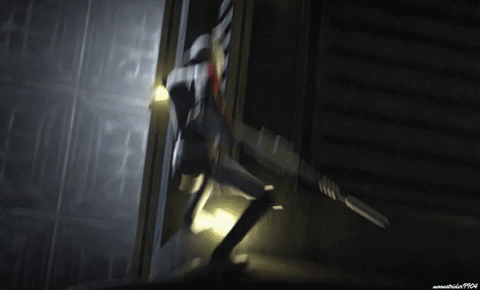

Most Artemis people, especially in their early adulthood, are engrossed in their work or causes. Marriage and childbearing are often far from their minds, or they outright reject them. Though, they like children and are extremely protective of children, like a mother bear who ferociously protects her young. They also prefer to foster independence in children. There are headcanons that Crosshair is not interested in getting married and having children, or he is alright with marriage but chooses to be childfree. These are traits of his Artemis anima. Moreover, Crosshair is not much of a parental figure in the beginning possibly because he views Omega as a dependent, passive child, which is not ideal for an Artemis person. However, as Omega becomes more independent, active and assertive, it is possible for Crosshair to become protective of her while encouraging her to be independent.
A relationship with an Artemis person, be it platonic or romantic, usually resembles the sibling relationship, friendly rivals or the Artemis-Apollo twinship. Their desire to maintain independence in a relationship means they are not drawn to dominating partners and they are not interested in playing the parental role. Their partner is usually their equal with shared or complementary interests, or is the one who nurtures them like teaching them to be more considerate and sensitive. If the Artemis person and their partner are both competitive, they must be careful not to let their competitive nature kill off their relationship, which parallels the myth of Artemis and Orion, where Orion was killed due to Artemis being goaded to take on Apollo’s challenge. Some people do view Crosshair as a person who will treat his partner as his equal instead of dominating them (which is associated with his Poseidon archetype), and his partner is usually as competitive as him, or a nurturing person who opens him up. Crosshair has a strong connection with the Bad Batch, and he is shown to share a friendly competition with Wrecker during the Clone Wars. I interpret Crosshair and Tech having the Artemis-Apollo twinship due to both of them being similar yet different from each other. Crosshair mostly has a brother-sister dynamic with Omega, who usually helps him to be more considerate and sensitive to his feelings.
In the myths, Artemis never suffered but she did bring harm to those who offended her. Similarly, people who identify themselves strongly as Artemis usually cause others to suffer rather than hurting themselves. If an Artemis person is raised to look down on traditionally feminine values, she may develop a contempt for vulnerability and dependency. Her relationships with others are marked with emotional distance and the usual physical unavailability. She may lose interest once her partner wants to get close to her emotionally, or becomes dependent on her, which are seen as “weaknesses” to her. She may even be cruel to her loved ones, treating them as unwanted intruders. Hence, it is important for an Artemis person to realize the importance of love and trust of a special person.
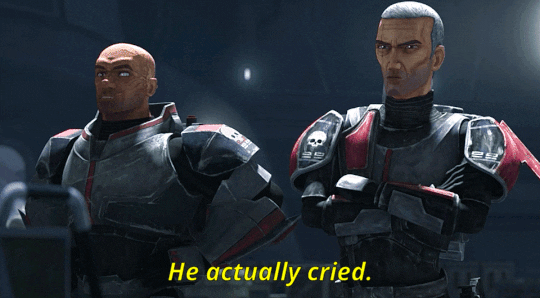
In “Aftermath”, Crosshair expresses his contempt for vulnerability upon seeing Hunter disobeying orders to save Omega. He also dislikes Omega trying to get close to him. It is likely that his inhibitor chip has affected him – possibly strengthening his Artemis anima to the point of becoming cold and cruel. However, he still retains the same contempt for vulnerability even without the influence of the inhibitor chip. In “Return to Kamino”, Crosshair tries to take Omega away from the Bad Batch and he tells Hunter to stop pretending to be a father figure to her because “that is not who he is”. In “Kamino Lost”, Omega tries to connect with Crosshair but he pushes her away again. Fortunately, Crosshair overcomes his contempt for vulnerability after receiving the love and trust from Commander Mayday in “The Outpost”.
Artemis has been called “the Far-Distant Artemis”, and this archetype is marked with emotional distance. This means Artemis people can become so focused on their own goals that they fail to notice the feelings of other people and can get offended by those who interrupt their focus. Their lack of attentiveness can make people who care about them feel insignificant and excluded. To grow beyond this archetype, Artemis people must learn to pay attention to others and be a good listener. They must also remain in touch and accessible to those who care about them.
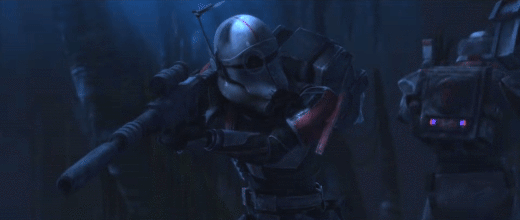
When Order 66 happens, Crosshair’s inhibitor chip is somewhat activated. He becomes adamant of following orders, which leads to conflict between him and the rest of the Bad Batch (especially Hunter). He does not understand why they choose to disobey orders, and he even sighs in frustration when Hunter tells him to stand down in “Aftermath” as if Hunter is interrupting his focus to carry out the order. When Crosshair joins the Empire, he becomes “inaccessible” to the Bad Batch. In “Return to Kamino” and “Kamino Lost”, Crosshair reveals that he already has his inhibitor chip removed and that he willingly joins the Empire. This realization hurts the Bad Batch because it means that Crosshair chooses not to come back in his own volition because he prioritizes his role as a soldier of the Empire. Although Crosshair remains mostly closed-off from other clones, Commander Cody’s advice does affect him in “The Solitary Clone”. Later, in “The Outpost”, Commander Mayday helps Crosshair to open up and become more accessible to him.
Artemis is known to be merciless. In one myth, the hunter Actaeon accidentally saw Artemis and her nymphs bathing in a hidden pool. The goddess turned him into a stag and he was later torn to pieces by his own hounds. In another myth, Niobe insulted Leto by bragging that she had many sons and daughters, unlike Leto who only had two. Leto called on Artemis and Apollo to avenge her without mercy. With their bows and arrows, Apollo killed Niobe’s six sons while Artemis killed Niobe’s six daughters, and Niobe was turned into a weeping pillar of stone.
People who strongly identify as Artemis are extremely loyal to others, tend to get angry at injustice, unafraid to express their point of view, and have a tendency to take action. These are positive traits of Artemis, but there is also a tendency to mercilessly judge the actions of others in an absolute black and white. From this perspective, not just an action is either entirely bad or entirely good, but the person who does the action is also either all bad or all good. With that, an Artemis person feels justified to retaliate or punish the person.

Crosshair is extremely loyal to the Bad Batch. However, when they leave him behind on Kamino, he feels betrayed and view them as bad people. In “Reunion”, Crosshair is determined to hunt the Bad Batch down as they have been branded as traitors to the Empire. In “Return to Kamino”, Crosshair offers the Bad Batch to join the Empire, but they refuse, which from his perspective, makes them all bad people. That is why he tells them not to make the same mistake twice and not to become his enemy. In “Kamino Lost”, Crosshair views Hunter as a bad leader because he has caused the Bad Batch to disobey orders, run away from the Empire and now they are trapped under Tipoca City that is sinking to the ocean floor. In “The Solitary Clone”, Crosshair calls the clones who are questioning orders as traitors like the Jedi because from his perspective, a good soldier follows orders without question, and even a slight tendency to question orders is considered an entirely bad thing, and it makes the soldier a completely bad person.
It is important for an Artemis person to develop compassion and empathy, which may come with maturity and experience. Many Artemis people enter adulthood feeling self-confident and invulnerable. However, after going through suffering, being misjudged or failing at something, they may grow to become more compassionate. They will learn to be more merciful as they learn what it is like to be vulnerable and become more understanding, they realize that people are more complex than they think, and they learn to forgive themselves and others for making mistakes.

Crosshair has always felt confident and invulnerable. He does not believe that he would be replaced by the Empire because of his superiority. He turns a blind eye at the regular clone troopers, who are feeling the plight of being forced into “retirement”. However, that all changes when Crosshair goes through suffering in “The Outpost”. He learns how to be vulnerable to Mayday, which makes him more understanding and compassionate towards the regular clone trooper. This helps Crosshair to become more mature, and realize that the Empire does not care about the clones, including him. Hopefully, Crosshair can learn to forgive himself for making the mistake of joining the Empire and disappointing the Bad Batch.
The goddess Artemis is known for her destructive aspect that is symbolized by the wild boar, one of the animals sacred to her. In Greek mythology, Artemis sent the Calydonian Boar to terrorize the countryside of Calydon because King Oeneus had failed to honour her in his rites to the gods. The Calydonian Boar was described to have burning, bloodshot eyes, thick bristles that stood like sharp spikes, hide tougher than armour, and tusks similar to those of Indian elephants. It trampled vineyards and crops, drove away flocks and herds of animals, and killed many heroes who had tried to bring it down. This rampaging destruction serves as a metaphor for an Artemis person on a warpath.
The rage of Artemis is surpassed only by that of Hera. Although both goddesses appear to share the same intense feelings, the provocation and the direction of the anger are different. A Hera person directs their rage at “the other woman”, while an Artemis person directs their rage at people (mostly men) for depreciating them or for disrespecting something they value. The rage of Artemis can be observed in people reacting to injustice with intense hostility that is often out of proportion to the particular provocation, which leads to a rampage similar to the Calydonian Boar, hurting themselves and many like-minded people along the way.

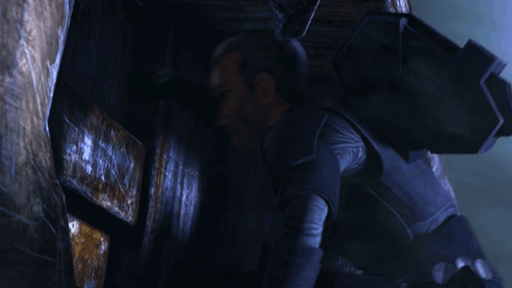
After the Bad Batch leaves Crosshair behind, he is greatly offended by their betrayal and for throwing away their legacy. He hunts them down as if he is like Artemis on a warpath. His rampage causes injuries to himself and his troops. In “The Outpost”, Crosshair is furious that Lieutenant Nolan refuses to provide medical aid to Mayday because “they should not waste the Empire’s resources on a clone”, resulting in his death. Crosshair reacts to the injustice with intense hostility and he shoots Lieutenant Nolan, instantly killing him. However, Crosshair’s action causes him to end up on Mount Tantiss, where he gets experimented and tortured by Dr. Hemlock.
In the myth of the Calydonian Boar, the huntress Atalanta faced the charging boar with a bow and an arrow, or in some versions, a spear. She waited until the boar was almost on her, took careful aim, and then shot the arrow or threw the spear through an eye, which was its only vulnerable spot. Her action successfully wounded the boar. According to Jean Shinoda Bolen, the destructive rage of an Artemis person can only be stopped by what Atalanta did in this myth. The Artemis person must take courage to confront their own destructiveness directly. They must see it as an aspect of themselves that must be stopped before it consumes them and devastates their relationships. They can no longer feel righteous and powerful when they realize how much damage they have done to themselves and others. Humility is what returns their humanity as they become aware that they are flawed humans, not an avenging goddess.
When Crosshair gets angry, he reacts by taking action. However, his actions sometimes hurt himself and others. For example, his decision to hunt the Bad Batch down because he feels betrayed by them worsens the rift between them. By killing Lieutenant Nolan to avenge Mayday’s death, Crosshair ends up being imprisoned on Mount Tantiss and is subjected to experimentation and torture. It is important for Crosshair to realize how destructive his rage is, and how it hurts him and others. He must learn not to let his rage consumes him, and instead become aware that he too is a flawed person.
The myth of Iphigenia depicted the crucial choice an Artemis person would make in their lives. In this story of the Trojan War, the Greek ships had been assembled to set sail for Troy, but no winds arose to fill the sails and carry the fleet to war. Agamemnon, the leader of the Greeks, believed that it was the doing of a god, so he consulted the expedition’s seer. The seer explained that Agamemnon had offended the goddess Artemis on his way to the Trojan War by hunting and killing one of her sacred stags, and she punished him by withholding the winds. The seer stated that the goddess could only be appeased by the sacrifice of Agamemnon’s daughter Iphigenia. At first, Agamemnon resisted, but as pressure from his troops mounted, he tricked his wife Clytemnestra into sending Iphigenia to him, on the pretext that she was to be married to the Greek hero Achilles. Instead, she was prepared for the human sacrifice in exchange for the winds. There were two types of endings for this myth. One version stated that the death of Iphigenia was carried out as demanded by Artemis. In the alternate version, Artemis interceded just at the point of sacrifice, substituting a stag in her place, and carried her off to Tauris, where she became one of Artemis’s priestesses.
Jean Shinoda Bolen interprets these two endings as the possible effects of the Artemis archetype. She believes that every Artemis person likely has certain traits of Iphigenia — young, trusting, vulnerable, receptive, nurturing, the ability to relate to others, the ability to be intimate with others, dependent on others, and the willingness to make sacrifices for the sake of others. On one hand, the Artemis archetype rescues these traditionally feminine values from the devaluation and oppression of the patriarchy, like Artemis rescuing Iphigenia. On the other hand, the Artemis archetype makes a person so intensely focused on their goals that they sacrifice and devalue these traditionally feminine values, like Iphigenia was sacrificed to appease Artemis so the winds could bring the Greek fleet to war.
With that, an Artemis person is faced with a crucial choice: Will they rescue and protect this Iphigenia part of themselves so that it can grow even as they continue with their life and pursue their goals? Or will they be required to kill this Iphigenia part of themselves in order to be as focused, hard and clear as possible?
The myth of Iphigenia is depicted in “Kamino Lost”. Omega represents Iphigenia for she is young, receptive, vulnerable and dependent on others. Hunter also represents some traits of Iphigenia for he is nurturing and he cares deeply for Omega. These values are deemed as traditionally feminine. In this episode, Omega is unwilling to lose AZI so she swims after the droid. Hunter wants to enter the water to save Omega because she is about to drown. At this moment, Crosshair pulls out his rifle and it seems like he is aiming at Hunter, which is why Wrecker, Tech and Echo point their blasters at him. This scene seems to depict the possibility of Crosshair choosing to “sacrifice Iphigenia”, which is “to eliminate Hunter and let Omega drown”. After all, the episode has shown that Crosshair still has conflicts with Hunter and he continues to push Omega away, which can be interpreted as Crosshair devaluing these traditionally feminine values in favour of the Empire and his soldier’s duty.

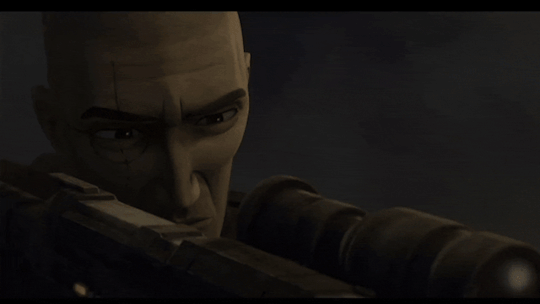
When it seems that Hunter is in danger and Omega is about to drown, Crosshair is actually aiming at the water and he shoots a grapple that latches onto AZI, allowing him to pull Omega and the droid to the surface. Crosshair’s action to save Omega’s life represents his Artemis anima choosing to “save Iphigenia”, which can be interpreted as Crosshair rescuing and protecting these traditionally feminine values. His action indicates that there is still good in him, and that he can be vulnerable, receptive and nurturing.
To grow beyond the Artemis archetype, one must learn to become vulnerable, to love and care deeply about another person. This usually happens after the Artemis person has “run down”, after they have achieved or failed their goals, or after the pursuit has gone stale. The people who care about the Artemis person may have to wait, or they can get some help from Aphrodite.
The Atalanta myth serves a metaphor for the psychological growth that an Artemis person may go through. Atalanta was a huntress and runner whose courage and capabilities were equal to any man’s. She was left on a mountaintop to die by her father soon she was born. She was then saved by a bear and raised by hunters. She grew up to be a beautiful woman and she devoted herself to the goddess Artemis. A famous hunter named Meleager became her lover and companion. They played an important part in the Calydonian boar hunt where Atalanta successfully wounded the boar and Meleager finished it off. Since Atalanta had drawn first blood, Meleager offered the boar skin to her as a prize. However, Meleager’s uncles, who had been hunting with them, thought it was disgraceful that a woman should get the trophy where men were involved. They tried to take the skin for themselves and claimed the credit for killing the boar. Meleager was outraged by this and he killed them, which then resulted in his mother killing him shortly thereafter.
Atalanta then left the wilderness, and was eventually reunited with her father. Her father recognized her as heir to his throne, and insisted that she should get married, which was something she was not interested of. Many suitors came to win her hand, and she rejected them all. As her suitors became more persistent, she came up with a challenge for them: she would marry the man who could beat her at a footrace, but he would lose his life if he lost the race. Race after race, Atalanta was always in the lead. Finally, the unathletic Hippomenes, who truly loved her, entered the race. He prayed to Aphrodite, the Goddess of Love and Beauty, for help at the night before the race, and she gave him three golden apples to use in the race. During the race, Hippomenes threw the three golden apples in Atalanta’s path three times, which managed to distract her long enough for him to cross the finish line first and take her as his wife.
The Atalanta myth, or more specifically the deadly footrace, is played out in “The Outpost”, and it helps Crosshair to grow beyond his one-sided Artemis anima and achieve wholeness. There are no official explanations as to why Atalanta is distracted by the three golden apples, but Jean Shinoda Bolen provides her own interpretations for the three golden apples, which surprisingly match Crosshair’s character arc in “The Outpost”.
When Hippomenes threw the first golden apple and Atalanta went to take it, she saw her own face distorted by the curves of the apple. The first golden apple is interpreted to have given her the awareness of time passing. Many Artemis people are unaware of time passing until their desire to take up challenges or to reach their goals dwindle. They may become aware that they are not going to be eternally youthful and start reflecting about their course of life. At the beginning of “The Outpost”, Crosshair observes three clone troopers protesting their “forced retirement” due to the Defense Recruitment Bill has been passed by the Senate. Upon arriving at the outpost, Crosshair meets Commander Mayday, who has been guarding the cargo held in the outpost for a year, and has been expecting reinforcements 36 rotations ago. By witnessing the clones being forced into retirement and realizing that a year has passed since the formation of the Empire, Crosshair becomes aware of time passing, and that soon enough, he would be replaced by Stormtroopers, as it is the fate of all clones.
When Hippomenes threw the second golden apple, Atalanta went to retrieve it, and memories of her dead lover Meleager took over her. The second golden apple is interpreted to raise awareness of the importance of love. As yearnings for physical and emotional closeness are stirred by Aphrodite, an Artemis person may become more receptive to love and intimacy, and this feeling is strengthened by the awareness of time passing.
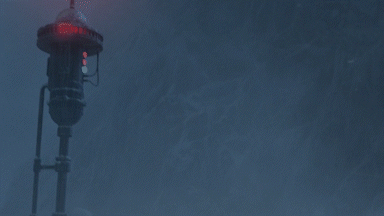
As Commander Mayday gives Crosshair a tour of the depot and its surroundings, he explains that they have been attacked by raiders who have caught them off guard in the last few raids. Mayday believes that the polar conditions have degraded the sensors, which may explain how the raiders get past them. To make matters worse, he is not receiving any replacements from the Empire. At this moment, Crosshair probably starts to recall memories of Hunter and Tech. Hunter would have been able to detect the raiders quickly thanks to his enhanced senses, and Tech would have upgraded the sensors to make it difficult for raiders to get past.
When Crosshair steps on a pressure mine, Mayday goes ahead to disarm it despite he is not an explosive expert and that he does not have the proper equipment to do so. However, he is able to improvise with the tools he has. At this moment, Crosshair probably starts to recall memories of Wrecker. Wrecker is an explosive expert, and he would have the proper equipment to disarm the pressure mine with ease. While Mayday disarms the mine, he asks Crosshair about his unit. This prompts Crosshair to mention that he was part of Clone Force 99, but they are gone. As he recalls the memories of his former squad, he probably begins to yearn for their presence and support. He probably starts to yearn for physical and emotional closeness, which is why he becomes closer to Mayday.
As Atalanta was about to pass Hippomenes and win the race, he dropped the third golden apple. For a split second, she hesitated: should she cross the finish line and win the race, or take the apple and lose? She chose to reach for the apple just as Hippomenes crossed the finish line, winning the race and her for his wife. The third golden apple represents procreative instincts and creativity, which are associated with Aphrodite. In life, there may come a time where achievements become less important to the Artemis person. They may shift their focus to other things like settling down and having a family, or transforming their experiences into some form of personal expression. They start to follow their heart more.
Crosshair and Mayday are sent to retrieve the cargo stolen by raiders. They are successful but they get caught in an avalanche. Crosshair digs himself out of the snow and finds Mayday injured. Mayday tells Crosshair to go because he is not going to make it. Crosshair now must make a choice: should he complete the mission and leave Mayday to die, just like he has said earlier, “no point of carrying deadweight”? Or should he abandon the mission and save Mayday’s life? Just like Atalanta gives up winning for Hippomenes, Crosshair gives up the mission for Mayday. Crosshair is well-aware that he will be reprimanded for not completing the mission, and his icy-cold reputation will certainly be tarnished. However, as he starts following his own heart, his brotherly love for Mayday wins over his ego and his tendency to follow orders.
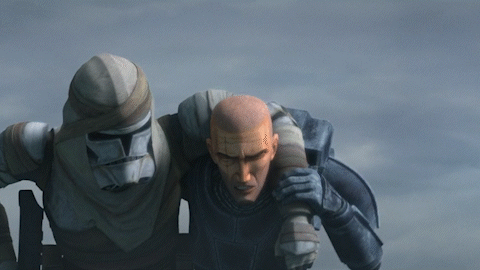
Jean Shinoda Bolen believes that the knowledge of Aphrodite can be brought through the love of another person, which can help an Artemis person to move beyond the one-sidedness of this archetype and achieve wholeness. The Artemis person can turn inward to reflect on what is important to them, and be inner-directed as well as outer-focused. They may realize their needs for intimacy as well as for independence. Once they embrace love, they will have moments to decide for themselves what is most important.
In “The Solitary Clone”, Crosshair begins to turn inward to reflect on what is important to him after Commander Cody tells him that they make their own decisions and choices, and they have to live with them too. Crosshair’s brotherly love for Mayday is what pushes him further to turn inward for reflection. From here, he decides that his loyalty to his brothers (and his sister Omega) and his protectiveness towards them mean the most to him. With the Empire not seeing eye to eye with him, Crosshair finally turns against the Empire.
Besides Artemis, Hera is another prominent archetype in Crosshair’s anima. Hera, or Juno as the Romans called her, is the Goddess of Marriage. She is the wife of Zeus (or Jupiter by the Romans), the chief god of the Olympians, who rules over the heavens and earth in Greek mythology. Her name is thought to mean “Great Lady”, which is the feminine form of the Greek word “hero”. Her symbols are the cow, the cuckoo, the Milky Way, the lily, and the peacock (and its iridescent tailfeather “eyes” that symbolized Hera’s watchfulness). Hera has two contrasting aspects: she is greatly revered and worshipped in rituals as a powerful goddess of marriage, and she is depicted as a vindictive, quarrelsome, jealous shrew due to Zeus’s infidelity.
In her rituals, Hera had three epithets and three corresponding sanctuaries where she was worshipped during the year. In the spring, she was Hera Parthenos (Hera the Maiden or the Virgin). She was celebrated as Hera Teleia in the summer and autumn (Hera the Perfected One or the Fulfilled One), and became Hera Chera (Hera the Widow) in the winter. These three aspects of Hera represented the three states of a married person’s life (or more specifically, a woman’s life in Ancient Greece): in spring, they were single; in summer, they felt completed through a wedding; in winter, they grieved at the end of their marriage due to separation or death of their partner.
Hera is the wife archetype that prompts a person to get involved in a committed relationship and to get married. People who identify strongly as Hera view marriage as a way to gain prestige, respect and honour. They want to be recognized as “someone important”, and they seek out outer acknowledgement by having a large wedding ceremony. They find joy, fulfilment and completeness in marriage, in which they see it as sacred. Just like Hera is married to Zeus, people who identify with the Hera archetype are attracted to competent, successful people like rulers, businessmen or politicians. They are usually not into artists, scholars or humanitarians. Their choice in partners comes from their view of marriage as something that provides comfort and security to their lives. Besides that, some Hera people may view marriage as a way out of a bad situation, especially if their parents resemble Hera’s parents Cronos and Rhea – a patriarchal, dominating father and a powerless mother.
There are many headcanons that Crosshair enjoys security and comfort in his life, which are granted by the Republic’s support. The Republic provides necessities to all the clone troopers such as food, shelter, payment, weapons, training and transport. With that, Crosshair may feel ease to do other things. Many fans agree that Crosshair is the most fashionable of the Bad Batch, and he likes to wear jewellery. He may indulge in the best fabrics for comfort like wearing a pair of sleepwear and/or eye mask that are made of silk. He likely cares about his appearance greatly, which leads to a headcanon that he uses a loofah (suggested by a fan) or a pumice stone (suggested by the person running the Star Wars twitter account) during showers for he cares about his skin. These headcanons evoke the imagery of the Hera archetype in Crosshair – pompous, feelings of superiority and likes attention. He probably gets jealous at Omega because she captures all the attention of the Bad Batch in “Aftermath”.
There are also headcanons that Crosshair likes to indulge the Bad Batch like bringing them to the best restaurants on a planet, buying things they like, or crafting things for them. The writers have come up with a headcanon that Crosshair is the one who creates Lula for Wrecker. I also have a headcanon that Crosshair creates Lula after the Hyperspace Stories #10 because Wrecker has lost the stuffed toy and Crosshair wants to cheer him up. I can imagine Crosshair buying something delicious for Wrecker to eat, getting the best equipment for Tech, and choosing the most comfortable fabric for Hunter to wear as a casual outfit. In “Aftermath”, Crosshair is shown to desire orderliness and cleanliness as he complains about the smell getting worse in the squad’s barracks, and that his bed is spotless and tidy (even his blacks are folded neatly). I have this headcanon that Crosshair is mainly responsible for the orderliness and cleanliness of the Marauder, and that Echo’s arrival has helped to ease most of his burdens. For example, Crosshair makes sure the floors of the Marauder are clean of dirt, dust, mud and food crumbs. He makes sure the lights and ventilation are working properly. He washes their blacks regularly and keeps a tab on their toiletries. He does all of these for everyone’s comfort, including himself.
I have seen people shipping Crosshair with a character that is of a higher status than him like a Jedi, a senator, or a politician, which kind of evokes the imagery of Hera and Zeus. There are many romantic headcanons for Crosshair that evoke the Hera archetype, for example, he buys something that his partner yearns to have regardless of the price, or he creates something for his partner to show his love and devotion. People who identify as Hera tend to share the same friend group and interests with their partner, even when they initially do not like them. It is a general headcanon that Crosshair will reluctantly do an activity with his partner because he prioritizes his partner’s needs and wants over his, which is a Hera trait. I have seen one headcanon that Crosshair is willing to give his partner children if his partner wants them, which is also a trait of the Hera archetype.
People who identify strongly as Hera find fulfilment in playing the role of a housewife or a househusband. They can take care of everything in the house while their partner is away for work. Since Crosshair has some traits of the Hera archetype, it is possible for him to play the role of a househusband well. Imagine yourself coming back home from a long, tiring day of work, and you find that Crosshair has cleaned the entire house, done the laundry, cooked your favourite meal, prepared a bubble bath for you, and planned to give you a body massage to help you relax before you go to sleep. Basically, Crosshair can be a devoted partner that pampers and spoils you, making you feel that you are the most important person in his universe.
The Hera archetype grants a person the capacity for commitment. They are loyal and faithful to their partner, and they are willing to endure and go through difficulties with their partner. They are the ones who stay “for better or worse”, and they are willing to drop everything for their partner. Loyalty means everything to the clones, and Crosshair takes it very seriously. Crosshair is extremely loyal to the Bad Batch, and he will do anything for them. In “The Bad Batch”, when Rex takes charge of the mission after Cody is injured, Crosshair sees it as Rex challenging Clone Force 99 for authority, or more specifically, challenging Hunter’s leadership role. This causes Crosshair to defend Hunter and Clone Force 99 by pointing out that Cody has called them in to help Rex, so Rex has no right to challenge their authority. This scene evokes an image of a Hera person fiercely defending their partner. I can imagine Crosshair leaving the last ration bar for Wrecker, placing a warm blanket on Tech when he has fallen asleep on his desk, and giving Hunter a hug upon seeing how work has overwhelmed him. Crosshair always gives his best to his loved ones, and puts their needs above his.

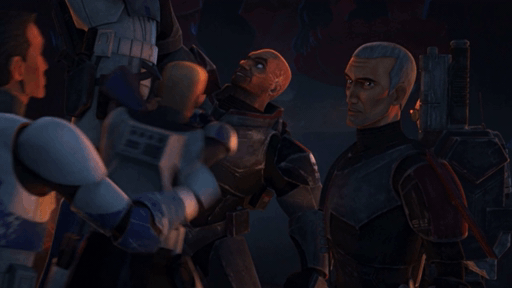

In Greek mythology, Zeus got close to Hera by turning himself into a shivering little bird. Hera took pity of the bird and brought it close to her body to warm it up. Then, Zeus revealed himself as the chief god and made a promise to marry her, in which she accepted. People who identify strongly as Hera may find themselves attracted to powerful and successful people that are also emotionally immature like Zeus. This emotional immaturity is what makes a Hera person to view them as “a poor little creature in need of Hera’s warmth and protection”. This caring trait of Hera can be seen in Crosshair. Although Crosshair can get annoyed at Wrecker’s antics (even telling him to “grow up”), his complaints are never taken seriously by anyone. In “The Bad Batch”, when Jesse defends Rex from Crosshair, Wrecker grabs and lifts him by the throat. Crosshair then defends Wrecker by warning Kix to stay out of it and fights him. This shows that Crosshair is not just protective of Wrecker, he is also enabling Wrecker’s impulsiveness. In “Aftermath”, Crosshair complains about the smell in their barracks and he does not like their laziness on cleaning up the mess. Yet, his complaints are treated as passing comments, and he does not try to change the Bad Batch. He probably grumbles while cleaning up the mess they have created, as if he is just tolerating their bad habits. The Bad Batch probably even sees it as a hobby for Crosshair that is not sharpshooting. Just like how Hera views Zeus in his poor little bird form, it is possible that Crosshair views Hunter, Tech and Wrecker as “poor little boys” in need of his warmth and protection. He feels the need to fiercely defend them from criticisms and insults, and he does not feel the need to change them at all, even if their antics do annoy him.
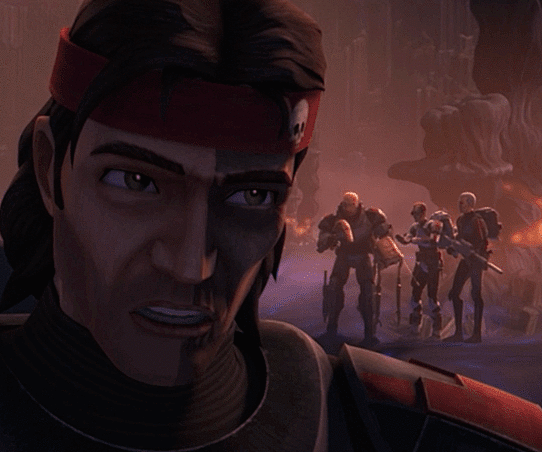

When the goddess Hera was worshipped in Greek temples and the marriage of Zeus and Hera was ritually enacted, Zeus was called Zeus Teleios, which meant “Zeus, Bringer to Fulfilment”. With that, a Hera person unconsciously places an archetypal expectation of fulfilment on their partner, with the assumption that they will be transformed by marriage. This tendency to project an image of an idealized partner onto a person can usually lead to disappointment, criticism and anger from the Hera person, causing them to urge their partner to change.
To a Hera person, a happy marriage means that their partner is devoted to them, placing their marriage first, and appreciating them as their wife or husband. However, a Hera person is usually drawn to people like Zeus, who are devoted to their careers. A Zeus person usually uses marriage to boost their social image by marrying someone from the same class or higher than his, and they can appear side by side in public. This type of marriage is a personal disaster for a Hera person due to their partner’s lack of involvement and concern of her. Yet, no matter how dissatisfied the Hera person feels about the marriage, they are the least likely to seek divorce and instead, they choose to bury their feelings by putting on the image of a perfect couple.
People who identify strongly as Hera have a tendency to place their relationship with their partner above everything else. They believe in marital promises of eternal devotion and they are willing to make sacrifices for their partner. They can give up their education to be a full-time wife or husband for their partner, get a job to support their partner, or relocate to another town or country if their partner wants to move. Hera people usually do not maintain family ties and friendships made before marriage. They are usually not close with their own children since they tend to prioritize their partner over their children. They also do not maintain their own interests prior to marriage. They instead make themselves conform to their partner’s life, interests and friends. These constraints can lead to problems for a Hera person, and they are made worse if their partners do not give them support to grow beyond the Hera archetype.
The Hera archetype can be such an overwhelming force that it oppresses people, and it turns people into oppressors. This archetype may make an unmarried person feel incomplete and they may end up in a bad marriage. This archetype may also cause a married person to stay in a bad marriage no matter how damaging it is to them. They may constantly nag at their partner for failing to live up to the image of Zeus who fulfils, or they may become enraged and jealous if their partner is unfaithful – be it in a factual or an imaginary scenario.
Whenever Zeus cheats on Hera, the goddess does not channel her rage towards her husband. Instead, she channels her destructive and vindictive rage at the other women (e.g. Callisto, Io, Leto, Aegina), at children conceived by Zeus with other women (e.g. Heracles, Dionysus), or at innocent bystanders (e.g. Echo). Just like the goddess, Hera people tend to judge and punish other people by excluding or ostracizing them and their children, all because they do not meet Hera’s standards. Hera people are judgemental towards people who are unmarried, sensual, or divorced because they are seen as “a threat” that can attract their married partner. Hera people are also judgemental towards people who are not personally threatening like unmarried mothers on welfare.
These disappointed expectations, constraints and judgmental attitude from the Hera archetype can be seen in Crosshair. In “Aftermath”, Crosshair does not see the difference between the Republic and the Empire because their roles as soldiers are being maintained. He expects the Bad Batch to stay as soldiers because that is what they are made for, and that is the only acceptable role for them. Besides that, Crosshair looks down on the regular clone troopers and does not like to work alongside with them because he sees himself and the Bad Batch as more superior than them. Of course, his decision to ostracize the regular clone troopers is also due to him and the Bad Batch are constantly bullied by the regs. When Omega approaches the Bad Batch and sits with them, Crosshair is not welcoming towards her. He sees her as a child, and that she should not hang out with soldiers like them.

Crosshair becomes extremely disappointed at Hunter when he chooses to disobey orders and he starts to prioritize Omega’s safety. To him, good soldiers should follow orders, and Hunter is breaking it. Crosshair’s bitterness towards the Bad Batch grows when they leave him on Kamino and they have taken Omega with them, giving the feeling that he has been replaced. Although he is furious at the Bad Batch, he does not channel his destructive rage towards them, even though the Bad Batch thinks that he is trying to kill them. Instead, he channels his destructive rage towards other people. In “Replacements”, Crosshair executes ES-01 for insubordination and he orders the rest of the Elite Squad Troopers to execute innocent civilians, in which the Bad Batch has failed to do so earlier. In “Reunion”, Crosshair dismisses the Bad Batch for scavenging like rats since they no longer have a stable financial support after deserting the Empire. For Crosshair, being a soldier is the only truly acceptable role for a clone trooper. The life of a mercenary or a bounty hunter is a definite “no” for him and for any clone trooper.
In “Return to Kamino”, Crosshair kills his own Elite Squad Troopers for refusing to stand down as he has ordered. He offers the Bad Batch to join the Empire to have a purpose again. Moreover, he tries to take Omega away from the Bad Batch, even telling Hunter to stop pretending to be a father figure to her, which in Crosshair’s eyes, is something Hunter is not. When the Bad Batch refuses Crosshair’s offer, he gets angry at them, warning them not to make the same mistakes twice and not to become his enemy. Despite witnessing and surviving the destruction of Tipoca City caused by the Empire, Crosshair still chooses to stay loyal to the Empire, and not even Hunter’s advice can get to him.
In “The Solitary Clone”, Crosshair is seen to be eating his meal alone as other regular clone troopers move away from him. It is true that regular clone troopers usually have issues with “defective” clones like Crosshair, but Crosshair’s tendency to limit himself to only the Bad Batch also now becomes a side effect as he is no longer with his former squad. He has nobody close to him in the Empire. Although Commander Cody is a close friend of Crosshair, his eventual desertion wounds Crosshair, causing him to further shut himself off. Furthermore, Crosshair still chooses to return to the Empire despite being stranded on Kamino for 32 rotations, claiming that he is a soldier of the Empire. Even though Crosshair later becomes aware that the Empire is not treating the clones well, he finds himself unable to desert the Empire and his role as a soldier, just like a Hera person finds themselves unable to leave an abusive relationship or marriage.
The Medea syndrome, which originates from the Greek mythology character Medea, describes the spurned woman, which is the negative Hera pattern. The Medea myth is a metaphor that describes the Hera woman’s capacity to put her commitment to a man ahead of everything else, and her capacity for revenge when she finds that her commitment counts for nothing in his eyes.
In the myth, Medea was the priestess and daughter of King Aeëtes of Colchis. The Golden Fleece belonged to the king, and Jason and the Argonauts sought it. Jason needed help to obtain the Golden Fleece as it was well-guarded, and that he needed to complete three seemingly impossible tasks given by the king in a single day. His patron goddesses, Hera and Athena, managed to persuade Aphrodite to make Medea fall in love with him and help him steal the Golden Fleece. Jason begged Medea to help him and promised that he would marry her. So, out of her love and loyalty to Jason, Medea helped him steal the fleece. By doing so, she betrayed her father and her country, and brought about her brother’s death. She fled with Jason, and they eventually settled in Corinth. They got married and had two young sons.
Since Medea was a foreigner, her position was similar to that of a common-law wife. Jason wanted a better life, so he decided to marry Glauce (or Creusa), the daughter of King Creon of Corinth. As a condition for the marriage, Jason agreed that Medea and their children would be exiled. Medea was enraged with Jason for breaking his vows, and she felt humiliated that all her sacrifices and crimes committed for him meant nothing to him. With that, she plotted and carried out her revenge.
First, Medea sent Glauce a gown and a golden coronet that were covered with poison as wedding gifts. Once Glauce put them on, she was burned to death. Her father tried to save her, but he was also burned to death. Then, Medea was in conflict between her love for her children and her desire for revenge. Ultimately, her desire for revenge won, and she murdered her children. When Jason learned of her vengeful plot, Medea fled to Athens in a golden chariot driven by dragons sent by her grandfather, the god of the sun Helios. Despite all the crimes Medea had done, she retained the favours of the gods. As for Jason, since he broke his oath to love Medea forever, he lost favour with Hera and he died alone and unhappy. His story ended with a rotting prow of the Argo breaking off and crushing him in his sleep.
Literal reenactments of the Medea myth are rare, but they are quite common on a metaphoric level. When a person is influenced by Hera and Aphrodite like what happened to Medea, their instinct to mate and their passion for their loved one may cause them to put that relationship above everything. They may leave their family and friends, betray their own values, and cut off any ties if necessary. They will not have any help or support if their partner behaves like Jason.
The Medea person may imagine or attempt to harm their partner’s lover. For example, “Medea” may spread lies to damage the reputation of the other woman or man. Moreover, the Medea person may attempt to destroy their children’s relationship to their partner. They may take the children away, or make efforts to drive their partner away from the children. They may even make their children hate their other parent. It is worth noting that Medea did not murder Jason in the myth. Similarly, the hostile, spurned Hera often harms other people more than the partner who left them.
Crosshair shows his Hera’s destructive rage and the Medea syndrome in “Return to Kamino” and “Kamino Lost”. When Hunter says that they are loyal to each other and not the Empire, Crosshair counters that Hunter is not loyal to him and he has not forgotten that time the Bad Batch left him behind on Kamino. Crosshair is also bitter that the Bad Batch has thrown away their legacy. I have seen headcanons that Crosshair is willing to make tremendous sacrifices for his squad, which aligns with Hera’s capacity for commitment. When the Bad Batch leaves him behind, Crosshair must have felt that all of his devotion and sacrifices mean nothing to his squad. This incident leads him to take on the hostile, spurned Hera archetype.
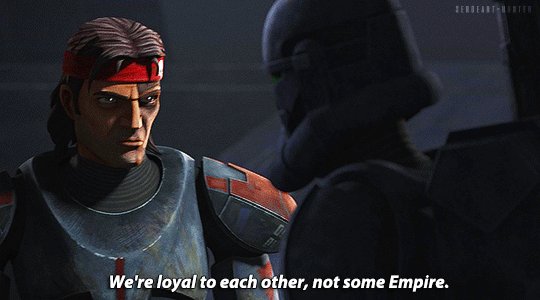
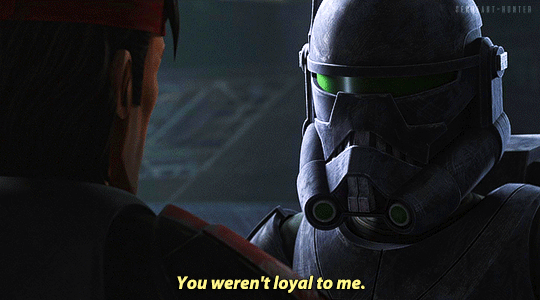
Furthermore, Crosshair tries to take Omega away from Hunter and send her on a shuttle off-world. Hunter pleads with Crosshair not to do it because Omega belongs with the Bad Batch. However, Crosshair says that Omega is in constant danger from living among fugitives like the Bad Batch, and he is doing this for her own good and for the Bad Batch too. Crosshair even tells Hunter to let go of Omega and stop pretending to be something that he is not – a father figure to the child. This argument evokes the metaphoric reenactment of Medea and Jason, where Crosshair is the “Medea” that threatens to take the child Omega away from Hunter the “Jason”. True to Hera’s destructive rage, Crosshair has no intention of killing the Bad Batch despite their alleged treason and their disloyalty towards him. Instead, he kills his Elite Squad Troopers for refusing to stand down.
To grow beyond the Hera archetype, one must recognize Hera’s influence and understand the susceptibilities of this archetype. It is crucial for a Hera person to expand beyond the Hera archetype. They must realize that this archetype at best limits them, and at worst is destructive to them. They must consciously develop other archetypes, which can enrich their life and marriage, and give them the ability to adapt if death or divorce brings the marriage to an end.
Besides that, a Hera person should view marriage as a growth experience instead of an expectation of fulfilment. An insecure Hera person is highly susceptible to jealousy, and they can easily suspect infidelity or feel humiliated by their partner’s inattention. They may alienate their partner with accusations or make their partner be more aware of the effects of their indifferences. Their partner may learn to respond to the Hera person’s needs with compassion. The Hera person must repeatedly decide whom to trust – the suspicious Hera within or their partner. To grow, they must resist Hera and give their partner credit for support and fidelity.
In the myths, Hera has two sons – Ares, the God of War, and Hephaestus, the God of the Forge. Hera favoured Ares, and “like mother, like son”, Ares’s uncontrollable fury on the battlefield mirrored Hera’s uncontrollable vindictiveness. When a Hera person struggles with their vindictiveness and rage, they can transform their rage and pain into creative work by following the example of Hephaestus, whose wife Aphrodite was repeatedly unfaithful to him. Any kind of work, be it mental or manual, can help the Hera person to channel their rage in a healthy manner instead of being consumed and destroyed by it. Crosshair is close to Wrecker, who has a strong Ares archetype. Like Hera and Ares, they both express their rage directly, which is evident in “The Bad Batch” where Wrecker and Crosshair get into a fight with Jesse and Kix. Since Echo has a strong Hephaestus archetype, Crosshair can learn from Echo to channel his rage in a healthy manner.
It is normal for any person to grasp the loss once their partner has left them. For a Hera person, they are likely to believe that their partner will miss them and come back, just like that myth about Zeus and Hera’s reconciliation. In this myth, after a quarrel with Zeus, Hera left him and retreated to the island of Euboea, and there was nothing Zeus could say to change her mind. King Cithaeron then advised Zeus to stir her jealousy by announcing that he was about to marry Plataea, the daughter of Asopus. Then, Zeus arranged a mock wedding ceremony with a wooden statue of a woman that was wrapped up in a dress. Once Hera heard the news, she stormed into the wedding and tore away the dress from the figure, only to discover that it was a lifeless statue. Hera was amused by this prank, and she and Zeus reconciled and returned to Mount Olympus.
This myth provides several psychological elements for a possible reconciliation to occur. Firstly, Hera let go of more than her husband Zeus. She also let go of her hopes that he would change, and let go of the role of victimized, vindictive Hera. After Hera left, Zeus discovered that she was truly important to him. Zeus set up the mock wedding ceremony with a wooden statue to convey the message that each of his affairs had been a symbol to him (like the statue) rather than an important relationship. Hera was amused by it because she finally recognized that no other woman really had mattered to him all along, leading to a reconciliation. Life sometimes follows this mythic happy ending, but most of the time, it does not. A Hera person may see that separation has not changed her partner’s heart. Then, they must accept reality, grieve and move on with their life.
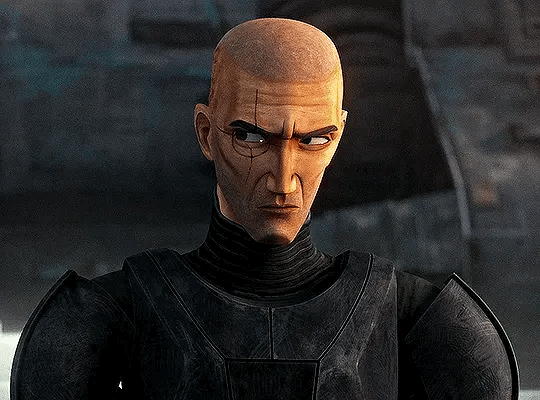
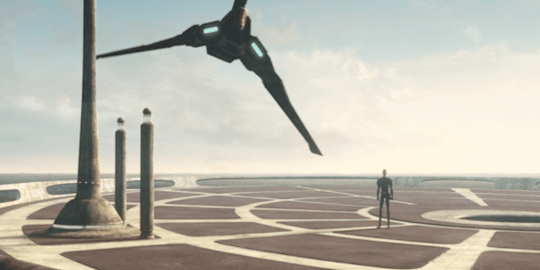
Despite feeling betrayed by the Bad Batch leaving him on Kamino, Crosshair still clings onto the hope that they can be brothers again. He proves his loyalty towards them by killing his Elite Squad Troopers. Then, he offers them to join the Empire as their chance of reconciliation. However, they refuse his offer, forcing Crosshair to face the reality that the separation has not changed their hearts. When Hunter offers Crosshair a chance to rejoin the Bad Batch, Crosshair refuses, claiming that he has made his decision. At this moment, Crosshair lets go of more than the Bad Batch. He also lets go of his hopes that they will change, and lets go of the role of victimized, vindictive Hera. By accepting this reality, Crosshair is able to grieve and move on with his life without the Bad Batch. He stops chasing after them and he lets go of any desire for revenge. Of course, Crosshair is still loyal to the Bad Batch, and this is proven when he lies in his report that they have perished in the bombardment of Tipoca City. He still wants to protect them, even going so far as to send Plan 88 to warn them to hide.
In “The Crossing”, Tech admits to Omega that he does miss Crosshair. When Tech reveals that Crosshair is now under the hands of Dr. Hemlock, Wrecker is surprised that Crosshair has turned against the Empire. Based on his voice, Wrecker is hopeful that Crosshair will come back to them. Tech then pushes the mission to rescue Crosshair because he is their brother, and they do not leave their own behind. Omega, Wrecker and Echo are supportive of the mission, which leads Hunter to give the approval. Their attempt to rescue Crosshair conveys the message that Crosshair is truly important to them.
Since the worship for the goddess Hera was done in a yearly cycle (Hera the Maiden in spring, Hera the Fulfilled One in summer and autumn, and Hera the Widow in winter), there is an archetypal possibility for a Hera person to complete the cycle and begin anew. A Hera person can emotionally “widow” themselves by leaving a relationship or marriage that is empty, abusive or smeared with infidelity. They can then start anew and choose wisely this time. Their drive to be a committed partner can once again be fulfilled in a positive manner as they find themselves in a new relationship or marriage.
Crosshair takes on the archetypal Hera the Widow when conflict arises between him and Hunter, and it gets worse when the Bad Batch leaves him on Kamino. In “Kamino Lost”, Crosshair chooses to emotionally “widow” himself by not returning to the Bad Batch that clearly does not trust him anymore. This is evident when Wrecker, Tech and Echo point their blasters at Crosshair because they think that he is going to shoot Hunter, when in fact, he is going to shoot a grapple to save Omega. Although Crosshair has made a horrible decision to stay with the Empire, he does come to his senses after meeting Commander Mayday. When Mayday is devastated to realize that the Empire disposes the clones despite their loyalty and sacrifices, Crosshair finally understands that loyalty goes two ways. Since this loyalty between the clones and the Empire is only one-sided, Crosshair turns against the Empire. I am sure that once Crosshair is back with the Bad Batch, he can start anew with them and make wiser decisions this time – like he “recycles” himself and takes on the archetypal Hera the Maiden.
Crosshair’s archetype combination is Poseidon, Apollo, Artemis and Hera. These archetypes are opposites to each other: Poseidon is emotional while Apollo is logical; Artemis is independent while Hera is dependent on others. This combination gives Crosshair a lot of complexity: he is both logical and emotional, is an independent spirit but also deeply cares for his loved ones. In Greek mythology, Apollo and Artemis are twins, and they are both archers, capable of aiming their goals from afar. Apollo is associated with civilizations while Artemis is associated with the wilderness. The Apollo-Artemis combination helps Crosshair to accomplish his goals with ease. He works well with social institutions and he has a love for the wilderness. Besides that, the Poseidon-Hera combination is also possible for it reflects the relationship between Poseidon and his wife Amphitrite. Since a Poseidon person is more in touch with their emotions, they may place high importance on their loved ones, especially if they take on the mature Poseidon that embrace their emotionality in a positive manner. With that, a loving Poseidon can satisfy their Hera partner greatly. The Poseidon-Hera combination makes Crosshair an extremely loyal and committed person. He takes great care of his loved ones and he is fiercely protective of them.
It is worth noting that there is one myth where Poseidon, Apollo, Hera and Athena tried to overthrow Zeus, but they failed. They were punished except for Athena because she was the favourite child of Zeus. This myth gives an insight to the relationship between Hunter (Zeus), Tech (Athena) and Crosshair (Poseidon, Apollo and Hera). When Tech decides not to follow Hunter’s orders, Hunter gets annoyed by it but he lets Tech do his own thing. This is evident in “Cut and Run” when Tech decides to get their ship impounded by the Imperials because this is the simplest solution to get the chain codes. Hunter is angry that Tech goes against his plan, but he trusts that Tech has everything under control. He only warns Tech that Omega is on the ship. On the other hand, when Crosshair decides not to follow Hunter’s orders, Hunter immediately shuts him down. This is evident in “Aftermath” when Crosshair keeps shooting at Caleb Dume despite Hunter repeatedly orders him to stand down. Hunter even questions Crosshair about his actions, wondering what is wrong with him. Moreover, in the Hyperspace Stories #10, Hunter probably senses Crosshair’s frustration with the mission they are given, and he mistakes it as Crosshair questioning orders, which is why he reminds Crosshair that they have their orders. All of these seems to indicate that Tech is Hunter’s favourite, and Crosshair is treated like “the middle child” of the Bad Batch. It is also worth noting that Poseidon, Artemis and Hera are all known for their destructive rage that does not spare innocents, and this reflects on Crosshair’s wrath. If you want to live, do not ever get on his bad side.
Despite all four of his archetypes being opposites of each other, they all prioritize on loyalty and commitment, which are Crosshair’s main values. Crosshair is extremely committed to his duty as a soldier, but he is also committed to his loved ones (probably more than his duty as a soldier). He is fiercely loyal to his loved ones, and will do anything to protect them from harm. If you can see through his cold façade, you will find a man who is willing to make tremendous sacrifices to keep you warm and safe. You just need to be patient with him and be kind to him. As long as you are on his good side, rest assured that you will have a valuable friend and partner in Crosshair.
#star wars#star wars the bad batch#the bad batch#tbb#sw the bad batch#sw tbb#the bad batch analysis#tbb analysis#the bad batch meta#tbb meta#star wars clone wars#star wars the clone wars#sw the clone wars#sw clone wars#the clone wars#clone wars#star wars tcw#sw tcw#the bad batch crosshair#tbb crosshair#crosshair bad batch#crosshair tbb#crosshair the bad batch#bad batch crosshair#clone force 99#archetypal psychology#archetypes#goddesses in everywoman
16 notes
·
View notes
Text


Abraham Verghese, "Cutting for stone" - tumblr user cursedsuggestion- Sylvia Plath, "The unabridged Jornals of Sylvia Plath" - Sophie Kinsella, "The undomestic Goddess"
#frederik vesti#fred vesti#f2#prema racing#mercedes amg petronas#something something about this lil guy and making silly edits attempts of him#f1 web weaving
20 notes
·
View notes
Text
Sumerian gender-thinking finds expression through the image of Inanna, but it is hard to know what her image tells us about the nature of women and men. Is Inanna "alone of all her sex" (a phrase originally coined of the Virgin Mary to indicate the lack of similarity between her and mortal women)? Or does Inanna betray a deep suspicion that without the social constraints placed on women, they would indeed be very like men? This question is interesting from the point of view of cultural history. But it is almost irrelevant to the gender role of Inanna within Sumerian culture. Inanna stands at the boundary of differences between man and woman. The image of Inanna as a woman in a man's life-style reinforces social patterns of how men and women were actually expected to behave.
As Mesopotamian culture developed, the distinctive characteristics of Inanna were understood to constitute a difference between Inanna and other women. The Agushaya Hymn, an Old Babylonian mythical hymn about Inanna (by her Semitic name, Ishtar), labels her ferocity and love of warfare her zikrutu, literally, her "manliness." Another literary creation of the Old Babylonian period, the Gilgamesh Epic, also indicates that in this period the sexes were considered intrinsically different from each other.
In the Gilgamesh story, the superiority of Gilgamesh leads him to oppress his people. When their outcry reaches the gods, they realize that Gilgamesh acts this way because he has no peer. They decide upon the special creation of a new being who will be as an equal to Gilgamesh. In a similar situation, the god of the Bible creates a woman. But in the Gilgamesh Epic, the mother-goddess takes clay and creates Enkidu—another male. The true companion for Gilgamesh is not a woman to occupy his attention, but a male to be his close companion. The gods' solution to Gilgamesh's arrogance indicates a cultural sense that the truest bonding possible is between two members of the same gender. The true equality that leads to great bonding is between male and male. The closeness of same-sex bonding holds true also for females. In the Agushaya Hymn, Ishtar is undomesticated, fierce, and wild, quite unlike the other goddesses, and her ferocity had begun to frighten and dismay the other gods. Their solution is to create a companion who will occupy her, and so the god Enki creates a new goddess, another fierce female, Saltu, and sends her to Ishtar. Once again, the motivation behind the creation of same-sex companions for Gilgamesh and Ishtar is that there is a difference and distinctiveness between the genders. To the Babylonians of this period, a man and woman could never be as like each other as a man could be to a man, or a woman to a woman.
-Tikva Frymer-Kensky, In the Wake of the Goddesses: Women, Culture, and the Biblical Transformation of Pagan Myth
#Tikva Frymer-Kensky#innana#Sumerian goddesses#ancient gender beliefs#same sex couples in history#ishtar
22 notes
·
View notes
Text
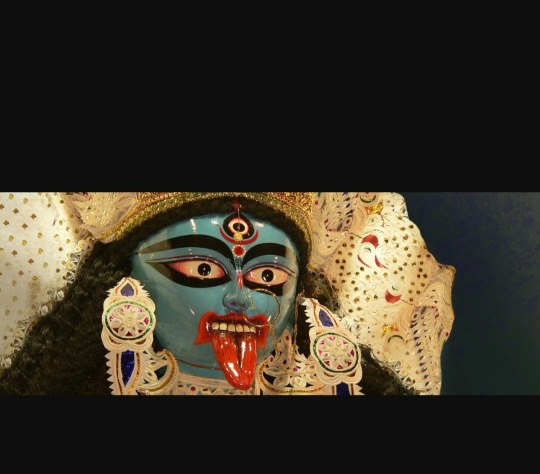
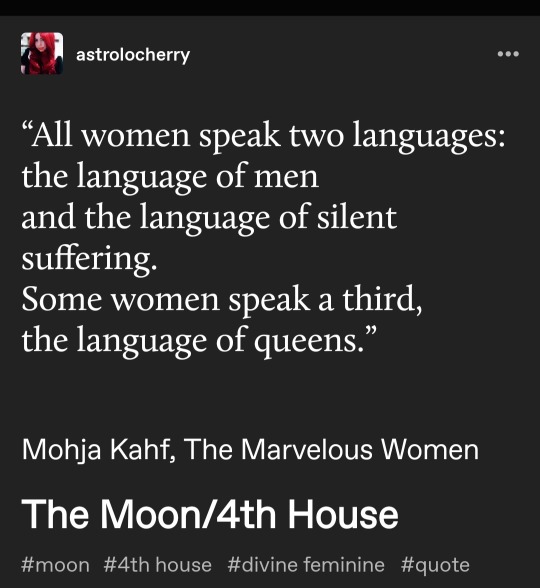
Kali and the patriarchal fears Via Medium
The goddess of death and what she represnts for the patriarchal society
She’s naked, covered with ashes, her hair matted with snakes in them, a garland of skulls and freshly cut heads around her neck. She laughs like madness herself, dancing to the chaotic rhythm of death, dragging a corpse behind her which she licks with her blood-red tongue from time to time.
Now imagine meeting her in the middle of the night on a dark lonely path. Here’s an old description — a dhyana mantra of Guhya Kali, one of the forms of Kali. The tantric text is called Tantrasaara and is written by Krishnananda Aagamavgisa.
“She is dark as a great cloud, clad in dark clothes. Her tongue is poised as if to lick. She has fearful teeth, sunken eyes and is smiling. She wears a necklace of snakes, the half-moon rests on her forehead, she has matted hair, and is engaged in licking a corpse. her sacred thread is a snake, and she lies on a bed of snakes. She holds a garland of fifty heads. She has a large belly, and on her head is Ananta with a thousand heads. On all sides she is surrounded by snakes….She has a snake-girdle and an anklet of jewels. On her left is to be imagined Shiva in the form of a boy. She has two hands and has corpses for ear ornaments. Her face, decked with bright new jewels, shows she is pleased and calm.”
🔻 She’s not likeable. Hell, she’s scary. In Hindu mythology, she’s nature— something that causes death and destruction, something that’s wild and raging, something that’s unpredictable and uncontrollable. Her hair are wild and open (mark of undomesticated woman or someone who doesn’t belong to a husband-ry), she dances naked outside. Both being naked and being outside is something that is forbidden to the female gender in our society.
You wouldn’t invite her into your homes (unlike the more demure Lakshmi, goddess of wealth or Saraswati, goddess of knowledge). She’s wild, frantic, out of control. She’s nature in its more fearful, horrific form, an earthquake, a hurricane, a tsunami. Her world is the one where a dog butchers another and all of them perish.
No wonder the patriarchal society, the cultured society, the rule based, control-based society, you and me, tremble at the very thought of her. You see, the patriarchal society is all about control — through rules, rituals, and routines. Do this, and you will get this. Do this and this and you can prevent death and disease from happening to you. If there’s a death in a neighbour’s house, don’t go there, for you might catch that disease.
If there’s a garbage-collector coming near you, step away, even though he takes your own garbage. Don’t touch him as he touches something filthy and you will become filthy too. Oh, your left hand is by default filthy. It wipes your bum after all!
Both genders are mired in rules, rituals and routines in this society — all in an effort to control life, prosper and save oneself from death. A man should control his estate and his woman, a woman should control her body and keep herself inside the house, under her husband. Both should stick to the codified laws of dharma created by some rishis a few thousand years ago. People most probably too stuck up to let their hair down.
Since she’s uncontrollable and fearful, like everything else, she’s associated with tantrics, who all mainstream Hindus see as charlatans, black magicians or simply people who are evil or threaten the codes of the patriarchal society. Like Bhairava (Both Kali and Bhairava feature in one of the most beautiful stories I have written in my upcoming graphic novel The Skull Rosary) she’s a goddess who belongs to the fringes of the society. She and her worshippers are associated with blood sacrifice, sometimes even human sacrifice. S
he’s the patron of thugs and witches—both of whom threaten the society’s status quo. Patriarchal society intellectuals have alternatively looked at her ugly form (by societal standards) as filthy, fearful or downright disgusting. That’s the reason you would not see rich merchants in Calcutta or Gujarat worshipping her. She’s of the night, meant for those who roam about the shamshaan in the night. She’s death itself.
If you worship her, you are either crazy or inconceivably evil. You are definitely not a well-wisher of the society. You are an outsider. Her image is the opposite to the mainstream, civilized society. She distrupts society. Personally, she inspires me and pushes me to write. She is the destruction and inspiration of creative energies itself and my heart beats in tandava with every step she takes. And so she inspires me to create destructive stuff. I am scared but I also bow down to her creative juices, sometimes leaking blood.
4 notes
·
View notes
Text
“Sometimes you don't need a goal in life, you don't need to know the big picture. you just need to know what you're going to do next.”
The Undomestic Goddess, Sophie Kinsella
2 notes
·
View notes
Text
‘Email’s an obsession! An addiction! As evil as alcohol. Or caffeine.’
For goodness sake, I’m not obsessed. I mean, that’s ridiculous. I check my emails about once every... thirty seconds, maybe.
- The Undomestic Goddess, Sophie Kinsella
1 note
·
View note
Text
September 2023 Read This Month
Rereads
All Things Bright and Beautiful/James Herriot (All Creatures Great and Small #2) (adult semi-fictional short stories memoir)
Frankenstein/Mary Shelley (adult sci fi)
The Report Card/Andrew Clements (mg realistic fiction)
5 stars
Mega-Predators of the Past/Melissa Stewart, illustrated by Howard Gray (mg non-fiction picture book)
4.5 stars
Deeplight/Frances Hardinge (young adult secondary world fantasy)
Mitch and Amy, illustrated by ?/Beverly Cleary (mg realistic fiction)
Shazam and the Seven Magic Lands #5/Geoff Johns, Marco Santucci, Dale Eaglesham, Scott Collins, Max Raynor, Mike Atiyeh (young adult superhero comics)
The Undomestic Goddess/Sophie Kinsella (adult realistic fiction)
4 stars
Death of a Salesman/Arthur Miller (play about society)
The Dwarf Trees/unknown, maybe Seami Motokiyo (historical fiction morality play)
Music from Another World/Robin Talley (young adult gay historical fiction)
Ruby, the Red Fairy/Daisy Meadows, illustrated by Georgie Ripper (Rainbow Fairies #1) (first chapter book fantasy)
Uprooted/Naomi Novik (new adult historical fantasy)
3.5 stars
Going Overboard/Nancy Krulik, illustrated by ? (Katie Kazoo #35.5) (first chapter books fantasy)
3.25
The Jewels of the Shrine/James Ene Henshaw (play about social change)
3 stars
Time of the Turtle King/Mary Pope Osborne, illustrated by A.G. Ford (Magic Tree House #38) (first chapter books time travel fantasy)
——————————————————————————————-
# books read: 16
Most read age groups: Adult
Most read genre: Fantasy
Average rating: 4 stars
#it's so weird to do this wrap-up bc right in the middle of all this the year changed#rtm#read this month#september 2023#september rtm#2023 rtm#september read this month#2023 read this month
3 notes
·
View notes
Text
“In his study of female choruses in Archaic cult, Claude Calame has shown that the most pervasive metaphor for marriage is the taming of the filly or heifer, the woman being seen as a wild, undomesticated animal, who becomes acculturated and civilized by being broken like a young beast. In seventh-century choruses, Artemis, Aphrodite, and Hera appear as the deities charged with protecting the successive phases in the process of integrating the adolescent female into the adult world: Artemis as guardian of the initiatory phase, Aphrodite as “instigator of seduction and inspirer of sexual desire,” Hera as “protectress of legal marriage and of adult womanhood.” At various Heraia, we have seen both the untamed and the tamed. Priestesses bear names and/or stories that attest to their untamed character: Admete ‘Untamed’, the founder of the Samian cult; Io, the heifer priestess at early Argos; Hippodameia, Hera’s Elean priestess whose name means “Horsetamer” but whose marriage to Pelops suggests a taming of the horsetamer. At Tiryns, Hera drives the untamed (admétoi) horse-named Lys-ippe and Hipp-onoe into the wild where these “fillies” learn to accept marriage and acculturation (Bacchylides 11.40-46, 84-85). As zugié Hera is “the yoker.” A Greek word for “wife,” damar, apparently meant the “tamed, domesticated one.” This metaphor also appears in the poets. Admés and its variants, adamatos and admétos (unbroken, untamed), appear in Homeric diction only of unbroken cattle and unmarried women. The verb “to tame” is used of animals, young women, and conquered people.”
- The Transformation of Hera: A Study of Ritual, Hero, and the Goddess in the Iliad by Joan O'Brien
4 notes
·
View notes
Note
what book have you recently read?
latest books i read were - the undomestic goddess by sophie kinsella and, a quiver full of arrows by jeffrey archer.
2 notes
·
View notes
Text

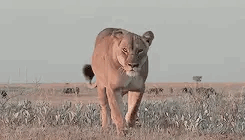


Vhagar
Goddess of the Hunt and Wildlife
Vhagar’s name is believed to mean ‘spear’, a weapon used for both war and hunting, however it is possible that her name means ‘wind’. Furthermore, while Balerion is the god of the sky, wind, and storms, his association with the wind tends to end at the wind in hurricanes, blizzards, and such. The wind, when not gale-strong, is Vhagar’s purview. Vhagar is also the goddess of undomesticated animals and hunting, which she does with both bow and spear. Vhagar is one of the four children of Vermithor and Meleys- the eldest and has no spouse or children, as she is determined to remain as free and as wild as the wind. Vhagar is described as having pale gold hair and eyes like purple fire. Vhagar’s symbols are a stag, a spear, and a bow.
5 notes
·
View notes